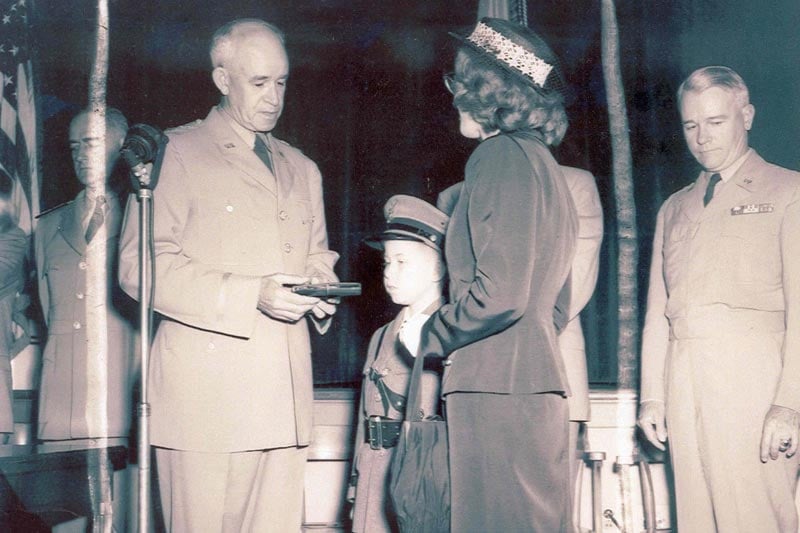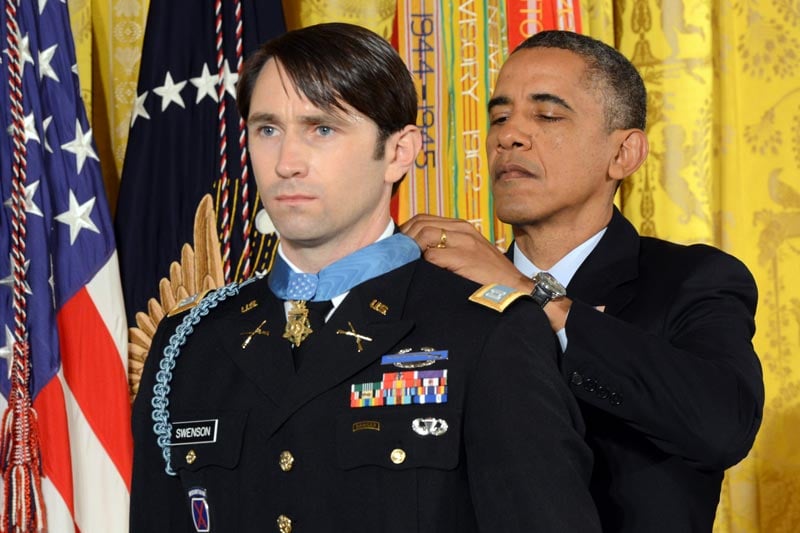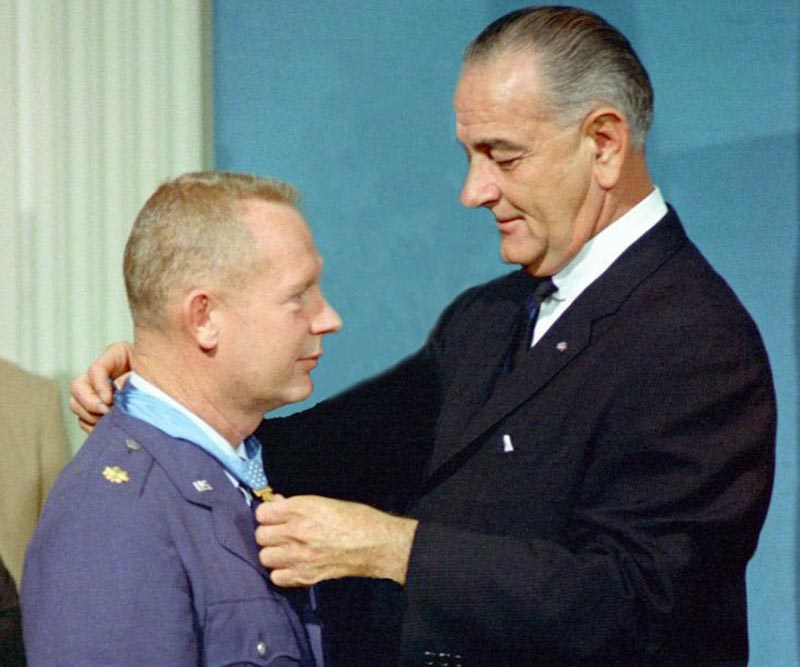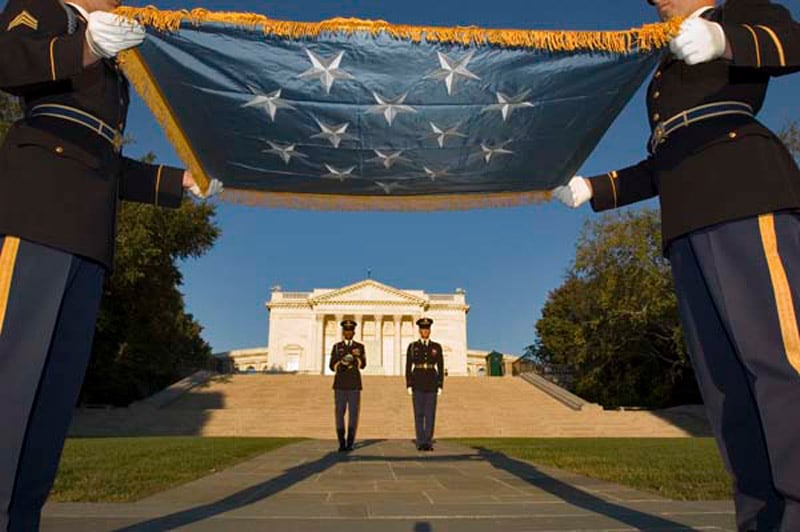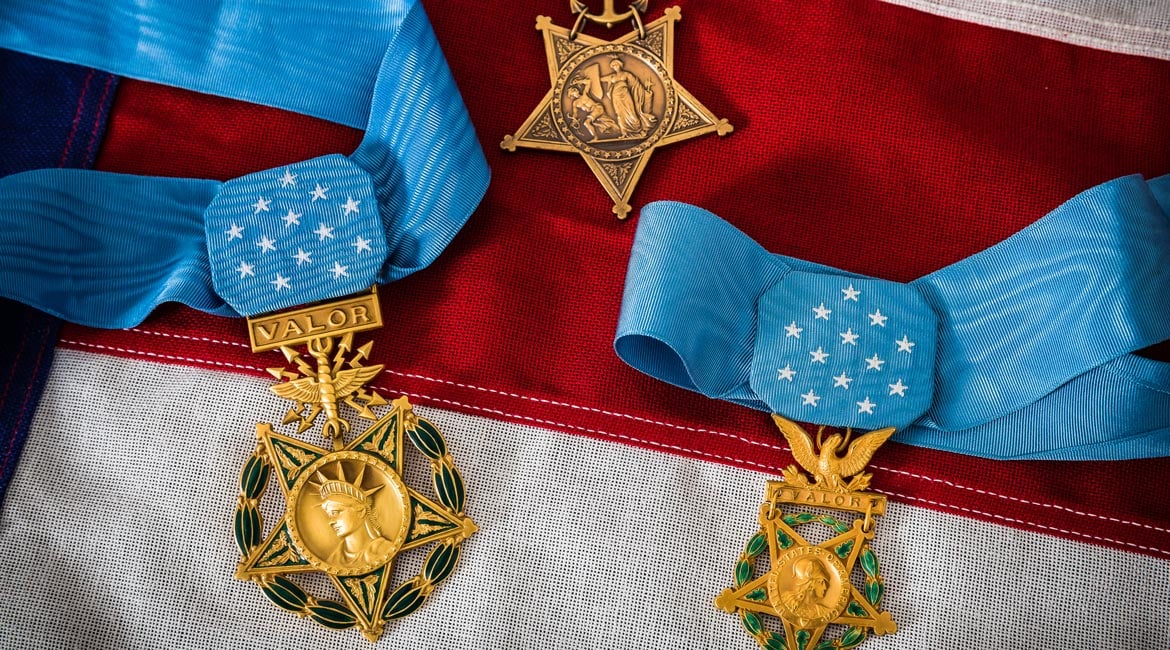
Congressional Medal of Honor Society
The Medal of Honor
The Medal of Honor is the United States' highest award for military valor in action. And while over 150 years have passed since its inception, the meaning behind the Medal has never tarnished. Etched within are the very values that each Recipient displayed in the moments that mattered—bravery, courage, sacrifice, integrity. A deep love of country and a desire to always do what is right.
A distinguished award presented only to the deserving, the Medal tells a story of its own.
Awarding the Medal
The standards to award the Medal of Honor have evolved over time, but the Medal has always stood for actions that go above and beyond. The current criteria were established in 1963 during the Vietnam War.
The Medal is authorized for any military service member who “distinguishes himself conspicuously by gallantry and intrepidity at the risk of his life above and beyond the call of duty
- While engaged in an action against an enemy of the United States;
- While engaged in military operations involving conflict with an opposing foreign force; or
- While serving with friendly foreign forces engaged in an armed conflict against an opposing armed force in which the United States is not a belligerent party."
All recommendations require thorough reports on the act itself, the battlefield and its setting; at least two sworn eyewitness statements; and any other compelling evidence that can be gathered. Recommendation packets must be approved all the way up the military command structure, ending with the United States President as the Commander-in-Chief.
By Federal Statute, recommendations for the Medal must be submitted within 3 years of the valorous act and the Medal must be presented within 5 years. Any submissions outside of this timeline require an Act of Congress to waive the time limits.
